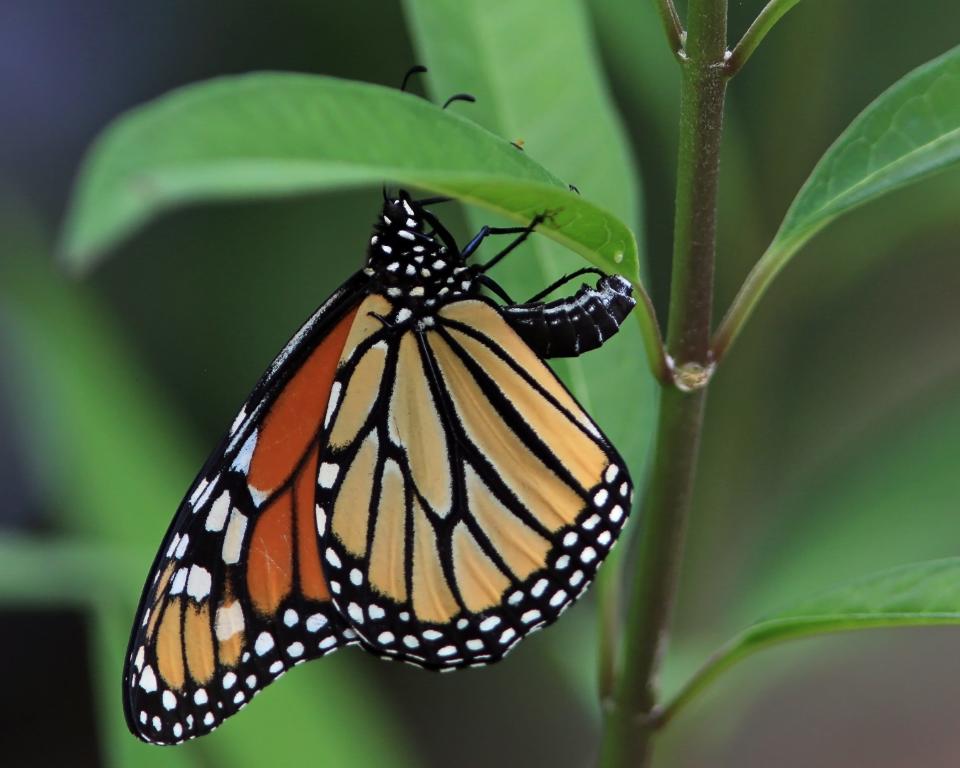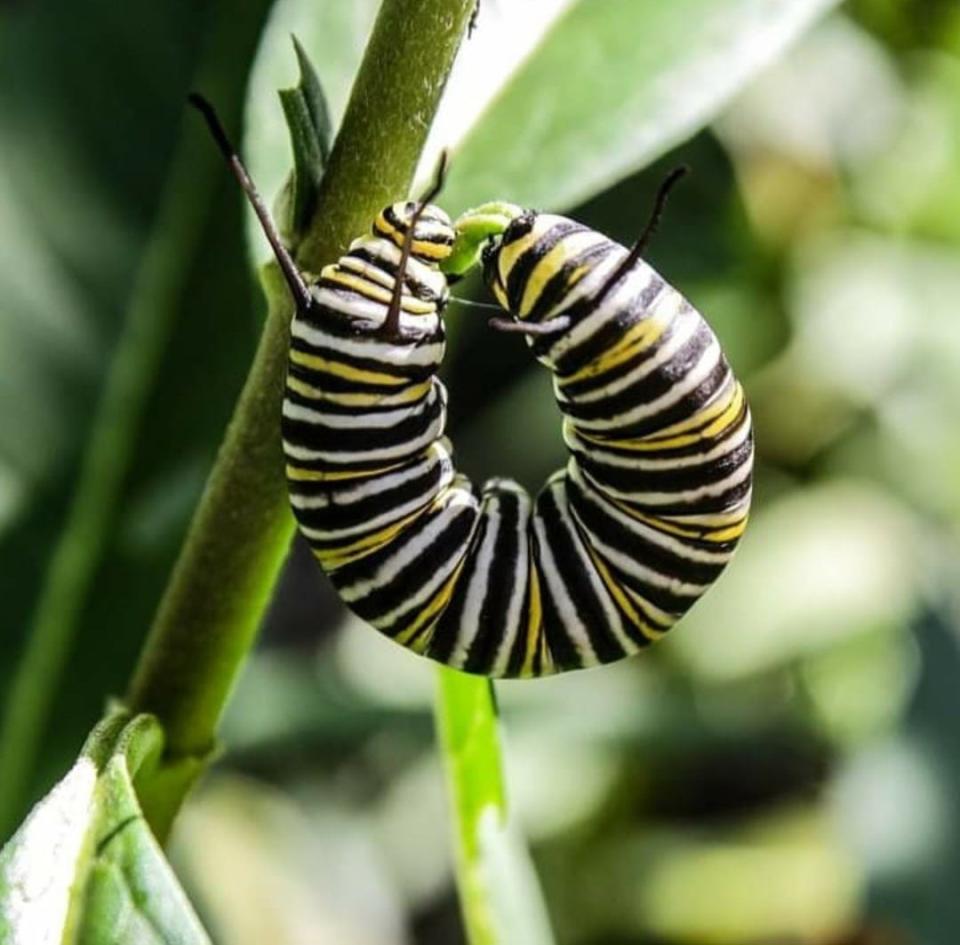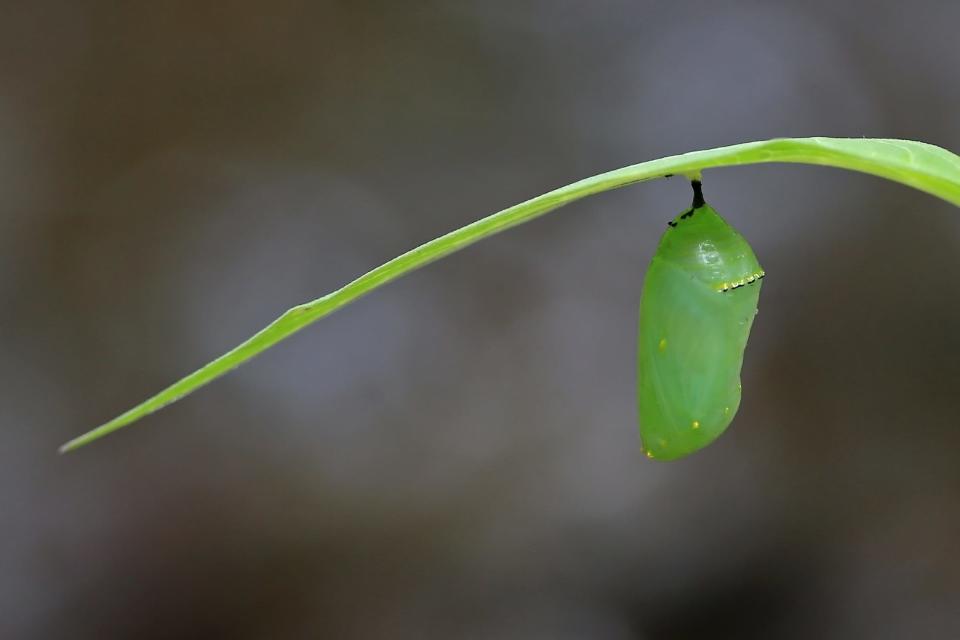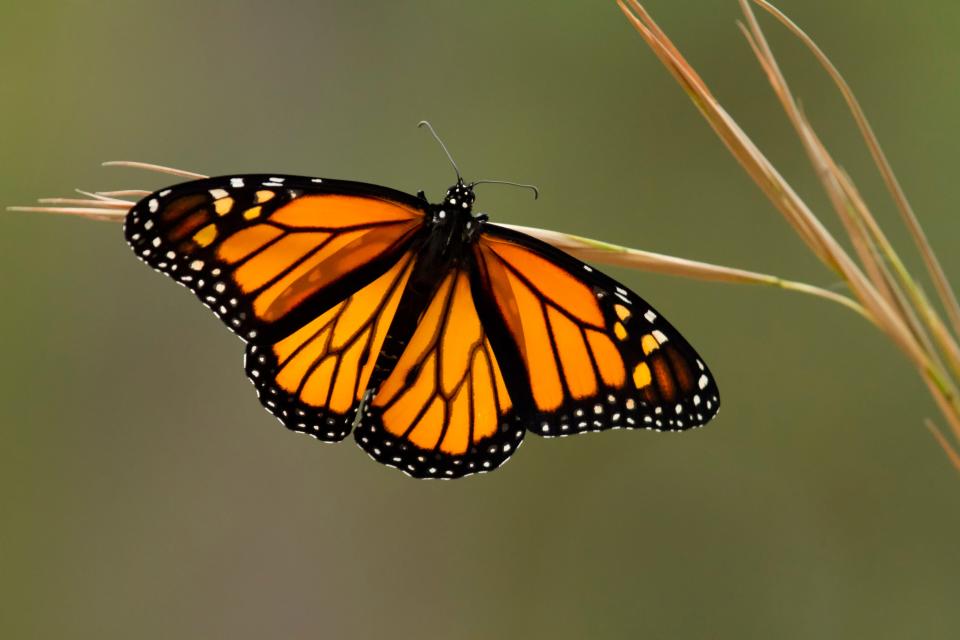Want to help Monarch butterflies in the Upstate? Here's how to create a habitat for free
If you’ve ever wanted to create a home for a baby monarch butterfly, it’s the season to plant in South Carolina.
Residents who want to attract monarch butterflies in their yard and give them a place to lay their eggs for the next generation can receive free native milkweed seeds from the South Carolina Wildlife Federation this spring.
As the climate changes and their natural habitats are converted to commercial and residential developments, monarch butterflies are faced with tougher conditions when they travel across the United States to Mexico for the winter. One challenge is a lack of access to milkweed plants which is where they exclusively lay their eggs.
The SCWF is encouraging South Carolinians to plant milkweed throughout the state to help reinforce habitats for eastern monarch butterflies. In 2024, a report from the nonprofit World Wildlife Fund reported a 59% population decline for eastern monarch butterflies in their typical winter habitats.
More: How Upstate residents can get free trees through TreesUpstate and Duke Energy program
Savannah Jordan, an associate wildlife biologist at the SCWF who oversees the Milkweed for Monarchs program said the seeds are an easy way for people to get involved with conservation.
"Their decline is largely due to loss of their habitat, which is the biggest thing. It’s up to us to help them," Jordan said. "We can each do a small part in our own backyards to make a huge difference for this beautiful species, and all it all it takes is just a simple action of planting milkweed."

How do I get milkweed seeds?
Anyone who wants to plant milkweed can request the free seeds at the SCWF website. There is a limit of one seed packet per household. However, bulk orders are available for groups, like schools or garden co-ops, for 50 cents per package.
This year, the SCWF has 6,000 seed packets available. Roughly 3,800 packets have been claimed so far.
The SCWF program is in its ninth year. In a statement to the Greenville News, SCWF Executive Director Sara Green said the organization started to get calls about where to find milkweed plants when the decline of monarch butterflies made headlines across the country.
Get Outside: Upstate residents can get free state park entry through their local library. Here's how.
"I realized that native milkweed was pretty hard to find, so I began ordering seed packets that we could give out to people who asked." Green wrote. "The pre-made packets were too expensive for us to purchase in mass quantities, so I found the bulk seed from Ernst and began developing our own information card, and recruiting volunteers (including my own children and my husband’s middle school students) to help prepare the packets in bulk quantities."
Now, Jordan said she sees hundreds of requests a day each year when the program kicks off in April.
"They just keep on coming in. It's amazing, and people send us pictures of their milkweed that they planted," she said. "Last year, we got dozens of people that sent pictures of caterpillars and the adult monarch butterflies on the milkweed that they planted from the seeds."

How do I make sure I’m planting my seeds correctly?
The packets from SCWF contain seeds for three types of milkweed that grow naturally in South Carolina: Swamp milkweed, common milkweed and butterfly weed.
Swamp milkweed may grow especially well in the lower part of the state, but Jordan said all three species will bloom anywhere in South Carolina. They can be planted in a yard or in a pot. Since each plant naturally grows in the state, Jordan said they’ll thrive when planted in full sunlight.
Each planting kit comes with instructions on how to handle the seed and a QR code with information on additional steps people can take to protect the butterflies. Jordan said it takes volunteers hundreds of hours to assemble each of the packets and mail them across the state.
Adult butterflies exclusively lay their eggs on milkweed. Once the caterpillars hatch, they eat milkweed leaves to grow. After a few weeks, they form their chrysalis and will stay in them for about 10 days before they emerge as adult butterfly.

Why are butterflies in danger? Why do we need to save them?
As natural areas progressively become converted into spaces for humans, there’s less room for milkweed to grow. Warmer temperatures, erratic seasons and harmful yard chemicals also provide a challenge for butterflies.
They are listed on the International Union for Conservation of Nature’s Red List as a vulnerable species.
Jordan said urban development, land conversion for agriculture, cutting down trees and drought are some of the issues that contribute to milkweed decline. In South Carolina, both growth and drought overwhelmed the state in 2023. Last year, South Carolina saw the highest percentage of growth per capita in the United States, as well as a drought that lasted for months.
"They’ve got a lot of stuff coming at them," Jordan said.
SC Drought: An Upstate drought ended in January. For farmers, the ramifications lasted for months.
One way people can help is by tagging butterflies for researchers. Monarch Watch is a program from the University of Kansas that helps people identify butterflies and tag them with a small sticker. Using the Monarch Watch app, they can submit tracking data. The app is free on the App Store and Google Play.

SCWF isn’t the only South Carolina entity fighting to help preserve butterfly habitats. Clemson and Greer are both declared “Monarch Cities” by a group called Monarch City USA that works to plant native milkweed and nectar plants within city limits.
In Greenville, Mayor Knox White signed a pledge called the National Wildlife Federation Mayor’s Monarch Pledge in 2022, 2023 and 2024. It includes efforts like public information campaigns about monarchs, the removal of invasive species and planting of milkweed and pollinator habitats and land preservation.
The SCWF also encourages residents to call their local nurseries and request that they carry native milkweed seeds. Jordan said they’ve already seen an uptick in nurseries providing native seeds.
Free seeds are available until they run out. Anyone who requests seeds after the 6,000-packet cut-off will be placed on next year’s waitlist.
Jordan said getting people to stop using insecticides is a steep challenge, so encouraging residents to plant milkweed is a small step toward the conservation of a species.
"I would say that it's one of the simplest and easiest ways people can help and make a change," she said. "It can be hard to make that kind of change, but it seems to be a more effective approach to get people to plant milkweed."
Sarah Swetlik covers climate change and environmental issues in South Carolina's Upstate for The Greenville News. Reach her at sswetlik@gannett.com or on X at @sarahgswetlik.
Have a question for Sustainability with Sarah? Ask here or email sswetlik@gannett.com.
This article originally appeared on Greenville News: Here's how SC residents can get free milkweed seeds for butterflies

